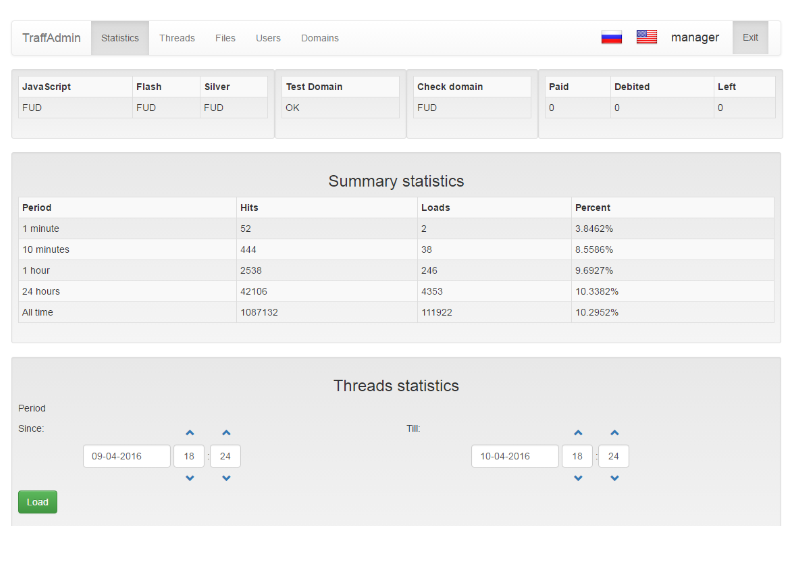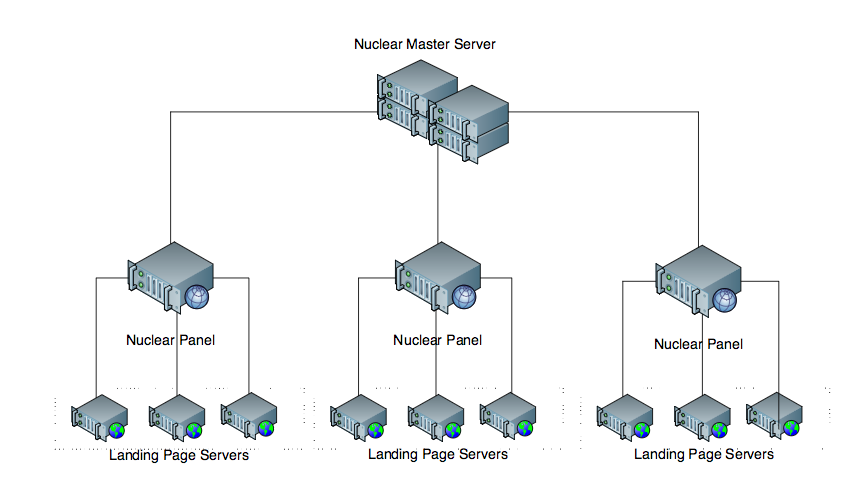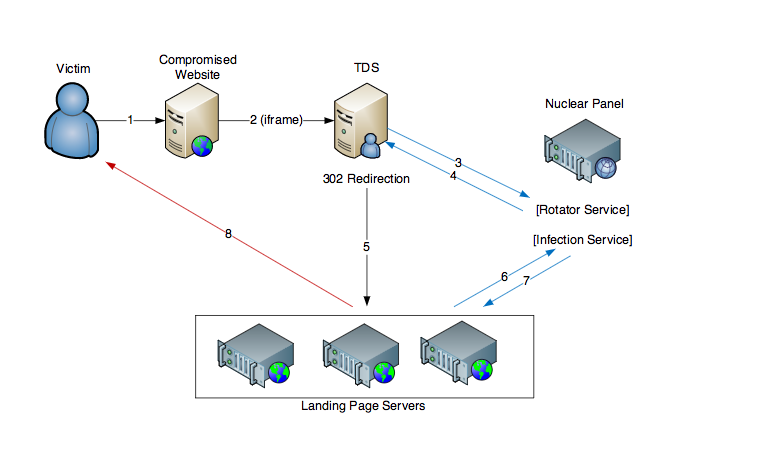Security researchers at Cisco Talos and Check Point have published reports detailing the inner workings of Nuclear, an "exploit kit" Web service that deployed malware onto victims' computers through malicious websites. While a significant percentage of Nuclear's infrastructure has been recently disrupted, the exploit kit is still operating—and looks to be a major contributor to the current crypto-ransomware epidemic.
Introduced in 2010, Nuclear has been used to target millions of victims worldwide, giving attackers the ability to tailor their attacks to specific locations and computer configurations. Though not as widely used as the well-known Angler exploit kit, it has been responsible for dropping Locky and other crypto-ransomware onto more than 140,000 computers in more than 200 countries, according to statistics collected by Check Point (PDF). The Locky campaign appeared to be placing the greatest demand on the Nuclear pay-to-exploit service.
Much of Talos' data on Nuclear comes from tracking down the source of its traffic—a cluster of "10 to 15" IP addresses that were responsible for "practically all" of the exploit infrastructure. Those addresses were being hosted by a single cloud hosting provider—DigitalOcean. The hosting company's security team confirmed the findings to Talos and took down the servers—sharing what was on them with security researchers.
At the same time, Check Point researchers had gained access to the paid malware delivery service's customer control panel and were able to plumb the service to collect their own statistics about its use.
Clipping coupons for infrastructure
Remarkably, after getting shut down initially, the operators of Nuclear quickly set up new DigitalOcean instances of the servers, using a different free e-mail account, according to a blog post by Cisco Talos' Nick Biasini. While Angler exploit kit servers have been usually tied to hosting accounts at various providers created with stolen credit card numbers, Nuclear's operators stuck to DigitalOcean because they were using coupon codes "to avoid traditional payment," Biasini noted, "and they remained careful by only registering a single host."
From a user-experience point of view—a criminal user, not the victim receiving the malware—Nuclear's Web console has a look and feel similar to that of any commercial hosting service's Web console, with bilingual support (English and Russian) and fairly intuitive tabbed forms. All a customer really needed to do was configure some filters and just add their preferred malware package for delivery. The console pages are served up on non-standard Internet Protocol ports—only a few elements of the service were seen using ports usually associated with Web traffic—likely to prevent the pages from being picked up by Web search robots.





 Loading comments...
Loading comments...
